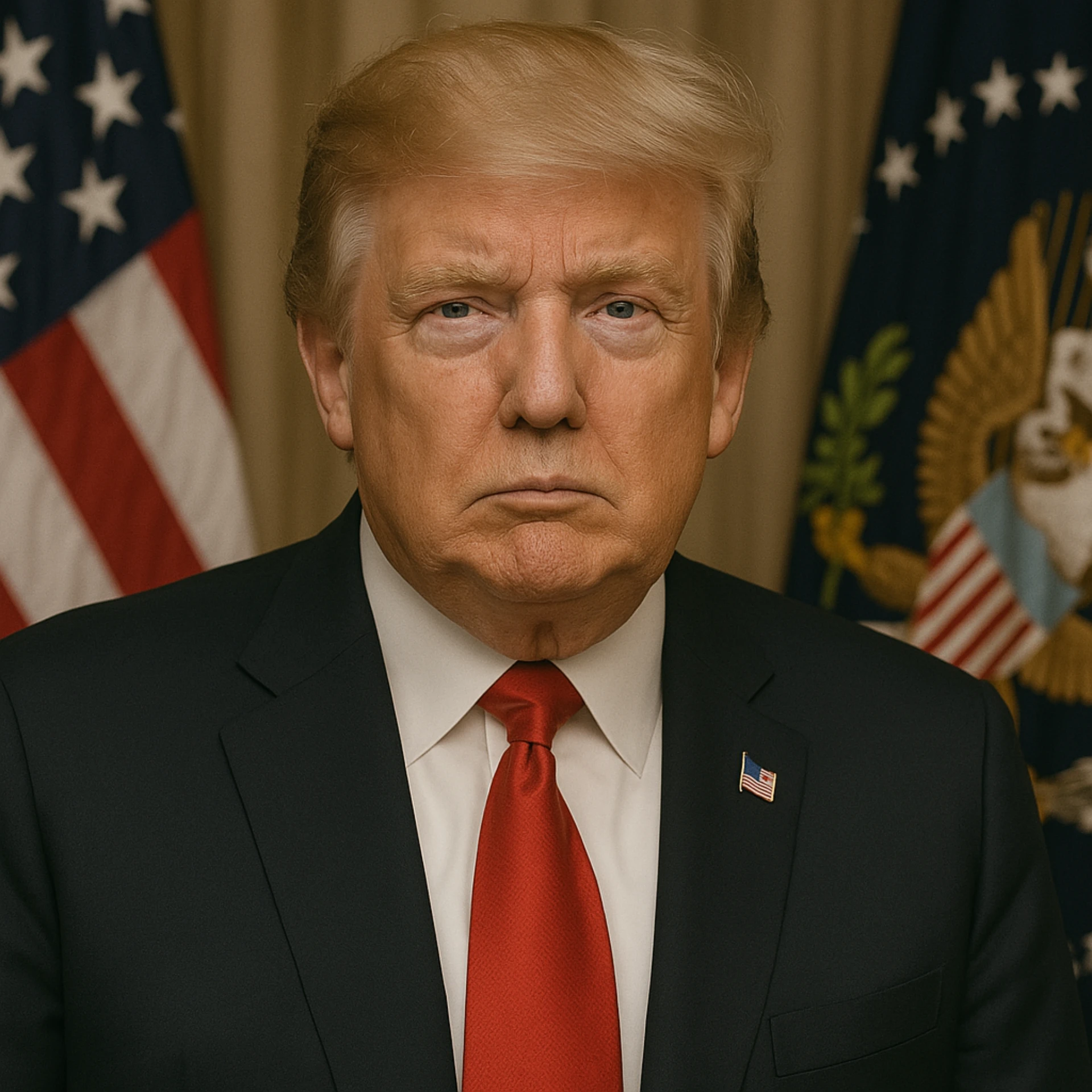Introduction
Charisma has long been regarded as an essential attribute of successful leaders, capable of inspiring loyalty, commanding attention, and mobilising followers. Historically associated with figures such as Winston Churchill, Martin Luther King Jr., and even controversial leaders like Adolf Hitler, charisma is often characterised by a mix of personal charm, confidence, and the ability to connect emotionally with others. In recent years, Donald Trump’s leadership style—especially during his presidency—has sparked considerable debate regarding whether he fits the label of a “charismatic leader.” While some argue that his populist rhetoric and polarising influence demonstrate charisma, others critique his leadership style as divisive and lacking in substance.
This article critically evaluates whether Donald Trump can be considered charismatic by examining related academic research and applying established theories of charisma in leadership. It will assess his appeal among his supporters, his communication style, his use of nonverbal cues, and whether his influence aligns with traditional expectations of ethical and effective charismatic leadership.
Defining Charisma: A Theoretical Framework
To understand whether Donald Trump embodies charisma, it is essential to define the concept within an academic framework. Sociologist Max Weber, widely credited with first theorising charisma in a modern context, defined it as “a certain quality of an individual personality by virtue of which he is set apart from ordinary men and treated as endowed with supernatural, superhuman, or at least specifically exceptional powers or qualities” (Weber, 1922/1947). In Weber’s view, charismatic leaders derive authority from their perceived ability to inspire and connect with followers through extraordinary qualities.
Contemporary leadership studies further refine the definition of charisma. Bass and Avolio’s (1994) transformational leadership model distinguishes between transactional and transformational leaders, with charismatic leaders falling in the latter category. Charismatic leaders often possess the ability to articulate an inspiring vision, instil pride and confidence in followers, and create deep emotional bonds.
However, the concept of charisma is not inherently positive. Some scholars, such as Conger and Kanungo (1987), have highlighted the potential for “dark charisma,” where leaders use their influence manipulatively or destructively. They argue that charismatic leadership can serve unethical purposes if it appeals to followers through fear, exclusion, or misinformation rather than genuine inspiration.
Donald Trump’s Rhetoric: Populist Appeal or Charismatic Communication?
One of the most commonly cited reasons for Trump’s political rise is his ability to connect with certain voter demographics, particularly working-class Americans who felt disenfranchised by traditional political elites (Inglehart & Norris, 2016). Key components of his communication style—direct language, repetition, and emotional resonance—are often seen as contributing factors to this connection. Additionally, Trump’s messaging consistently conveys a simple and memorable narrative that positions him as a champion of “the forgotten man and woman” (Manin, 2017). From his campaign slogan, “Make America Great Again,” to frequent claims that he “tells it like it is,” Trump has constructed an image of authenticity, which resonates powerfully with his followers.
Charismatic leaders are often skilled communicators who craft narratives that speak to the hopes or grievances of their audience. Trump’s rhetoric certainly appeals to widespread discontent, particularly around issues such as globalisation, deindustrialisation, and immigration. As Hochschild (2016) explains in her study of Republican voters in Louisiana, some Trump supporters view him as an antidote to perceived cultural and economic decline. His ability to connect emotionally with these voters—with statements that many political elites might avoid—aligns with certain aspects of traditional charisma.
Nonetheless, critics argue that Trump’s communication style lacks the sophistication of traditional charismatic leaders. For example, while Martin Luther King Jr. or Barack Obama articulated visions rooted in inclusivity and long-term progress, Trump often relies on divisive language, scapegoating, and negative framing (Ott & Dickinson, 2019). Terms such as “crooked Hillary,” “fake news,” and “drain the swamp” exemplify an adversarial approach, designed less to inspire collective purpose and more to polarise and galvanise specific factions. This form of rhetoric can be seen as anti-charismatic in the sense that it encourages conflict and alienation rather than unity, raising questions about the ethical foundations of his influence.
Nonverbal Communication and Presence
Nonverbal communication is a crucial component of charisma, signalling confidence, authority, and emotional impact. Researchers such as Antonakis et al. (2016) suggest that effective charismatic leaders use positive body language, dynamic facial expressions, and purposeful gestures to enhance their connection with audiences. Trump is undeniably adept at using his physical presence to command attention. His exaggerated gestures, such as sprawling hand movements or emphatic pointing, reinforce his statements and contribute to his larger-than-life persona.
However, Trump’s use of nonverbal cues does not consistently align with the principles of traditional charismatic leadership. For instance, his posture often appears defensive or confrontational, especially when debating or interacting with critics. Additionally, while some leaders employ eye contact to express sincerity and connection, Trump is known for avoiding it during key moments, which may diminish his aura of warmth and relatability. This could explain why his charisma resonates strongly with his strongest supporters but fails to win over broader audiences (Chen et al., 2021).
Another aspect of charisma is vocal delivery, which involves tone, rhythm, and emotional emphasis. Trump’s speaking style—ranging from energetic campaign rallies to a combative tone in press briefings—is both a strength and weakness. While supporters interpret this as authenticity and strength, detractors may perceive him as aggressive or lacking the calm, measured demeanour associated with other charismatic leaders like Franklin D. Roosevelt or Nelson Mandela (Gaffney, Rast, & Hogg, 2018).
The Role of Identity and Group Dynamics in Trump’s Appeal
Charismatic leadership often involves the ability to create shared identities and foster a sense of belonging among followers. As social identity theory explains, leaders gain influence not only through personal qualities but also by reflecting and amplifying the collective identity of their group (Haslam, Reicher, & Platow, 2014). Donald Trump’s appeal to many voters is deeply rooted in identity politics. His populist rhetoric frequently emphasises an “us versus them” narrative, with “us” representing American workers or patriotic citizens and “them” comprising elites, immigrants, and foreign competitors.
By crafting this divisive yet emotionally resonant narrative, Trump effectively channels group identities, fostering loyalty and a sense of mission among his followers. However, this strategy also exemplifies the darker side of charisma. Scholars like Reicher and Haslam (2016) caution against leaders who exploit collective identities for polarising purposes. Trump’s emphasis on exclusionary identity politics undermines traditional notions of leadership charisma meant to unite diverse groups under a larger, shared vision.
Ethical Concerns: The Dark Side of Charisma
As mentioned earlier, charisma is not an inherently ethical quality. Trump’s behaviour raises significant questions about the ethical use of charismatic influence. For instance, his penchant for hyperbolic or false claims has been well-documented (Lewandowsky et al., 2020). Whether exaggerating crowd sizes or asserting election fraud without evidence, these actions align more closely with manipulative forms of leadership than ethical charisma. Furthermore, his tendency to vilify opponents and spread misinformation has contributed to a toxic political environment, undermining the long-term cohesion and trust necessary for effective leadership.
Ethical charismatic leaders demonstrate selflessness, using their influence to uplift others and serve a higher purpose (Bass & Steidlmeier, 1999). Critics argue that Trump’s leadership style frequently prioritises personal gain and ego-driven objectives over collective progress. For example, his leadership often involves personal vindication or loyalty tests, rather than empowering followers through shared values or vision.
Comparing Trump to Other Charismatic Leaders
To determine whether Trump is genuinely charismatic, it is useful to compare him to other well-known figures commonly regarded as charismatic leaders. For instance, Barack Obama’s leadership style is widely recognised for its inclusivity, vision, and ability to inspire hope. Obama’s measured tone, rhetorical sophistication, and ability to unite diverse audiences exemplify positive transformational leadership grounded in ethical charisma (Moss, 2016). In contrast, Trump’s focus on divisiveness, coupled with his adversarial tone, represents a stark departure from these principles.
A more comparable example might be populist leaders such as Silvio Berlusconi or Hugo Chávez, who similarly used charisma to gain and retain political power. Like Trump, these leaders employed simple rhetoric, media manipulation, and populist narratives to appeal to disaffected segments of the population. However, as Mudde and Rovira Kaltwasser (2017) note, their leadership styles were often criticised for undermining democratic institutions and fostering instability—an outcome also linked to Trump’s presidency, particularly his actions surrounding the 2020 U.S. election.
Conclusion
The question of whether Donald Trump is charismatic ultimately depends on how one interprets charisma. Measured against traditional theories of charisma in leadership, such as Weber, Bass, and Conger’s frameworks, Trump exhibits certain characteristics of charisma, such as confidence, the ability to energise followers, and emotional resonance. His populist rhetoric and “outsider” persona resonate strongly with specific groups, granting him a loyal following that aligns with aspects of charismatic leadership.
However, when evaluated through the lens of ethical charisma—leadership that inspires unity, trust, and long-term collective progress—Trump falls short. His reliance on divisive rhetoric, adversarial politics, and occasional use of misinformation challenges the principles of transformational leadership often associated with true charisma. Trump’s influence, while effective among his base, appears to be situational and polarising rather than transcendent and unifying.
In summary, Donald Trump can be considered charismatic in a narrow sense: he captivates and energises segments of the population through his unique communication style and personal brand. However, his leadership lacks the ethical and inclusive foundations that define truly transformative charisma. As history continues to evaluate his legacy, the distinction between charisma as mere magnetism and charisma as principled leadership will likely remain a key factor in judging his impact.
References
- Antonakis, J., Bastardoz, N., Jacquart, P., & Shamir, B. (2016). Charisma: An ill-defined and ill-measured gift. Annual Review of Organizational Psychology and Organizational Behavior, 3(1), 293-319.
- Bass, B. M., & Avolio, B. J. (1994). Improving organisational effectiveness through transformational leadership. Sage Publications.
- Bass, B. M., & Steidlmeier, P. (1999). Ethics, character, and authentic transformational leadership behaviour. The Leadership Quarterly, 10(2), 181-217.
- Conger, J. A., & Kanungo, R. N. (1987). Toward a behavioural theory of charismatic leadership in organisational settings. Academy of Management Review, 12(4), 637-647.
- Gaffney, A. M., Rast, D. E., & Hogg, M. A. (2018). Uncertainty and populism: How Trump has redefined charisma through fear and exclusion. Leadership Quarterly, 29(5), 661-674.
- Haslam, S. A., Reicher, S. D., & Platow, M. J. (2014). The new psychology of leadership: Identity, influence, and power. Psychology Press.
- Hochschild, A. R. (2016). Strangers in their own land: Anger and mourning on the American right. The New Press.
- Lewandowsky, S., Ecker, U. K., & Cook, J. (2020). Misinformation and its correction: Psychological perspectives. Current Directions in Psychological Science, 19(1), 14-19.
- Weber, M. (1947). The theory of social and economic organisation (A. M. Henderson & T. Parsons, Trans.). Oxford University Press. (Original work published 1922)










